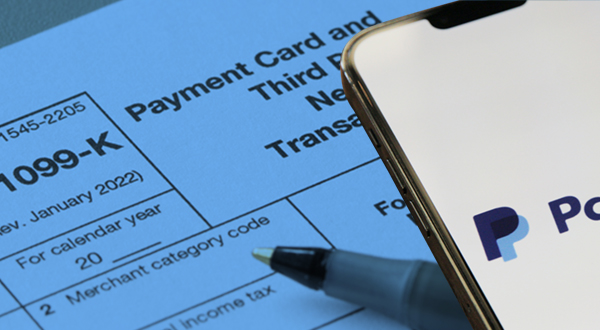The reporting threshold under which third-party settlement organizations (such as credit card companies, PayPal, Venmo, etc.) must file Form 1099-K is reduced to $600 starting with the 2022 tax year. Prior to 2022, credit card companies, PayPal, Venmo, and other similar payment apps were not required to issue you a 1099-K unless you had at least 200 transactions totaling $20,000 or more. The new $600 threshold does not have any threshold based on the number of transactions.
The purpose of the expanded 1099-K reporting is to find more people who have not been reporting all their income. Many taxpayers operating in the “gig” economy use smart phone apps to accept payments from customers. If you are accepting payment through one of these apps in exchange for goods and services, then you will likely receive a 1099-K, even if you haven’t received one in the past.
The gig economy has exploded over the last decade. It is estimated that roughly 59 million Americans participate in the gig economy. Most gig economy income streams revolve around driving services, such as Uber, Lyft, DoorDash, and Grubhub. In addition, many other taxpayers who have traditional jobs and historically accepted only cash payments (such as hairdressers) are now using payment apps.
There is a lot of debate as to whether you may be treated as an employee or as an independent contractor when you are performing gig work. And, depending on where you live, it’s possible that you may be treated as an independent contractor for federal tax purposes, and as an employee for state purposes.
Income you earn as a sole proprietor (including independent contractors) is subject to both income taxes and self-employment taxes. However, you may be able to deduct more of your expenses as an independent contractor than if you were an employee. You also have more planning opportunities to set up self-employed retirement accounts that allow you to invest more for your retirement than a traditional IRA and claim a greater tax deduction each year.
In addition to personal services, renting out homes, cars, and recreational vehicles through smart phone apps are also very popular sources of income in our gig economy. The rental income you derive is taxable to you and the rules can become very complex if you are renting out property that you also use personally. There are additional tax twists if you are renting out your home.
In any scenario, you bear the ultimate recordkeeping responsibility and must be able to substantiate any deductions claimed on your income tax returns.
If you have, or are considering, a gig economy job, please let us know. We are happy to discuss your specific job, the rules that apply, and any tax planning opportunities available to you.
